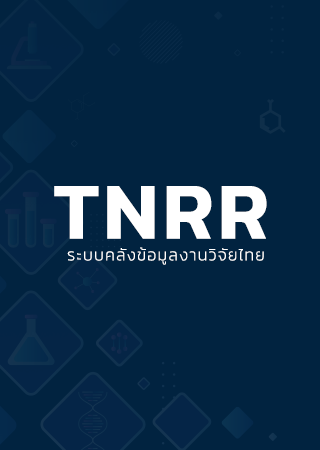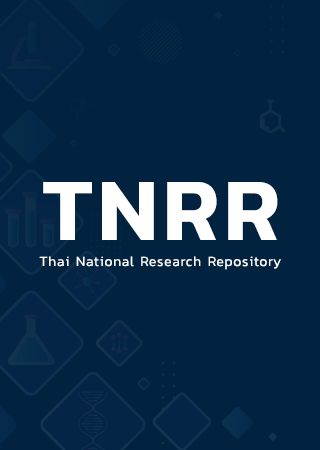Description
โครงการศึกษาแนวทางการนำเชื้อเพลิงขยะ (RDF) จากมูลฝอยชุมชนมาใช้ประโยชน์ในกลุ่มธุรกิจขนาดเล็ก (SME) หรืออุตสาหกรรมขนาดเล็ก มีวัตถุประสงค์หลักเพื่อศึกษาแนวทางในการนำเชื้อเพลิงขยะ (RDF) ไปใช้ในการผลิตพลังงานร่วมกับอุตสาหกรรมขนาเล็กเพื่อเป็นทางเลือกในการใช้ประโยชน์จากขยะโดยผลการศึกษา พบว่า เทคโนโลยีในการจัดการขยะและคัดแยกเพื่อให้ได้ RDF มีหลายประเภท RDF ที่ได้ส่วนใหญ่ยังมีคุณภาพต่ำหรือจัดอยู่ในกลุ่มของ RDF-2 จำเป็นต้องมีการปรับปรุงคุณภาพและเลือกใช้ให้เหมาะกับเทคโนโลยีการเผาไหม้ที่มีอยู่ โดยในการทดลองครั้งนี้ใช้ RDF ประเภทต่าง ๆ ใน 3 อุตสาหกรรม ซึ่งประกอบด้วย 1) โรงไฟฟ้าชีวมวลขนาดเล็ก 2) อุตสาหกรรมผลิตเครื่องปั้นดินเผา/เซรามิก และ 3) อุตสาหกรรมการผลิตพื้นรองพาเลทไม้ พบว่า เชื้อเพลิง RDF-2 ซึ่งมีคุณภาพต่ำมีความชื้นสูงจะทำให้ประสิทธิภาพของระบบการผลิตพลังงานลดลง นอกจากนี้ ยังจะมีปัญหาด้านสิ่งแวดล้อมในการเก็บรักษาและขนส่ง ขณะที่การทดสอบใช้เชื้อเพลิง RDF-3 และ RDF-5 ขึ้นอยู่กับเทคโนโลยีเดิมที่ใช้ โดยเชื้อเพลิง RDF สามารถใช้ร่วมกับเชื้อเพลิงหลักชีวมวลได้ แต่ต้องมีการควบคุมปริมาณและอัตราที่เหมาะสมทำให้สามารถสร้างสภาวะการทำงานของระบบ เช่น อุณหภูมิ ความดัน ได้เช่นเดียวกับการใช้เชื้อเพลิงชีวมวลเดิม นอกจากนี้ การใช้ RDF ร่วมไม่กระทบต่อการปนเปือนของมลพิษบนผลิตภัณฑ์ มีการปลดปล่อยมลพิษแตกต่างจากการใช้ชีวมวล และไม่เกินค่ามาตรฐานที่กำหนดไว้ จากการประเมินต้นทุนในการในการปรับปรุงคุณภาพของ RDF-2 เป็น RDF-3 RDF-4 และ RDF-5 ขนาด 20 ตันต่อวัน พบว่า ต้นทุนรวมในการผลิตเชื้อเพลิงขยะ RDF-5 มีค่า 901.7 บาทต่อตัน (ไม่รวมค่าเสื่อมราคา) โดยมาจาก ต้นทุนในการผลิต ต้นทุนจากการบริหารโครงการ และต้นทุนจากการเสียค่าดอกเบี้ยในการกู้ยืมเงินลงทุน (เงินกู้ 30% ของเงินลงทุน) ซึ่งเกือบร้อยละ 50 มาจากค่าแรงงานและค่าน้ำมันที่ใช้ในการผลิต (รถตัก) โดยมีผลตอบแทนภายในทางการเงินจากโครงการลงทุน (Financial Internal Rate of Return: FIRR) ร้อยละ 12.45 และกระแสเงินสดสุทธิจากการลงทุน (Net Present Value: NPV) = 17.77 ล้านบาท มีระยะเวลาการคืนทุน (Payback Period: PP) 6.64 ปี สุดท้าย ข้อเสนอแนะเชิงนโยบาย ประกอบไปด้วย 1) ศึกษา วิจัย เพื่อการวางแผนอย่างเป็นระบบ รวมทั้งเผยแพร่ข้อมูลและองค์ความรู้ด้านการผลิตพลังงานจากขยะ 2) พัฒนากฎหมาย ระเบียบ มาตรการ และมาตรฐานต่างๆ เช่น มาตรการลดการนำขยะไปฝังกลบ 3) สร้างตลาดกลางซื้อขายเชื้อเพลิงขยะ 4) พัฒนามาตรฐานการซื้อขายเชื้อเพลิงขยะ 5) พัฒนาการการบริหารจัดการด้านโลจิสติกส์ 6) สร้างกลไกสนับสนุนเงินทุน และ 7) การเป็นศูนย์กลางในการประสานงานความร่วมมือต่าง ๆ<br><br>The project on Meneficial use of RDF (Refuse-Derived Fuel) from municipal solid waste in SMEs (Small-Medium Enterprises) or small industries aims to study the approach of RDF utilization in SMEs as an alternative fuel. The study showed that there are many technologies for waste management that can produce RDF from MSW. However, most of the RDF is low in quality and classified as RDF-2. Modifications of the the system are required to improve the RDF quality and subsequently it can be used in an appropriate energy production technology. In this study, various types of RDF were tried to use in 3 groups of industry including 1) small-scale biomass power plant 2) earthware/ceramic factory and 3) wood pallet production factory. It was found that RDF-2, which has low quality with high moisture content, decreased the efficiency of the energy production system. In addition, environmental and transportation problems are araised. For the use of RDF-3 and RDF-5, they are dependent on existing combustor technology. Overall, they can be used in combination with biomass but required good control of feed quantity and rate. The conditions of RDF assisted with biomass fuel can be created as similar as the pure biomass i.e., temperature, pressure, etc. In addition, the use of RDF did not have any effect on product contamination and emissions of the system compared to conventional biomass fuels with all values are under standard limits. The financial appraisal of RDF-2 modification system to produce RDF-3, RDF-4, RDF-5 was proposed with a capacity of 20 tons/day. It is found that the capital cost of RDF-5 production is 901.7 Baht/ton (excluding depreciation). This cost is derived from production, project management, load interest (30% loan of total capital cost), which is almost 50% come from labor cost and oil fuel during operation (loaders). The financial internal rate of return (FIRR) is 12.45% with a net present value (NPV) of 17.7 million Baht and 6.64 years of payback period.Lastly, the policy recommendation for promote the used of RDF consists of 1) study and research for systematic planning of data collecting and promoting knowledge of waste management for energy production, 2) improvement of law, regulation, measures and standard for waste management i.e. landill reduction measures etc., 3) promotion of the RDF market, 4) development of RDF standards, 5) development of logistic system for RDF transportation, 6) development of supporting funding mechanism and 7) creating cooporating center for waste management
Date of Publication :
02/2023
Publisher :
สำนักงานการวิจัยแห่งชาติ (วช.)
Category :
รายงานการวิจัย
Total page :
77012 pages
People Who Read This Also Read


